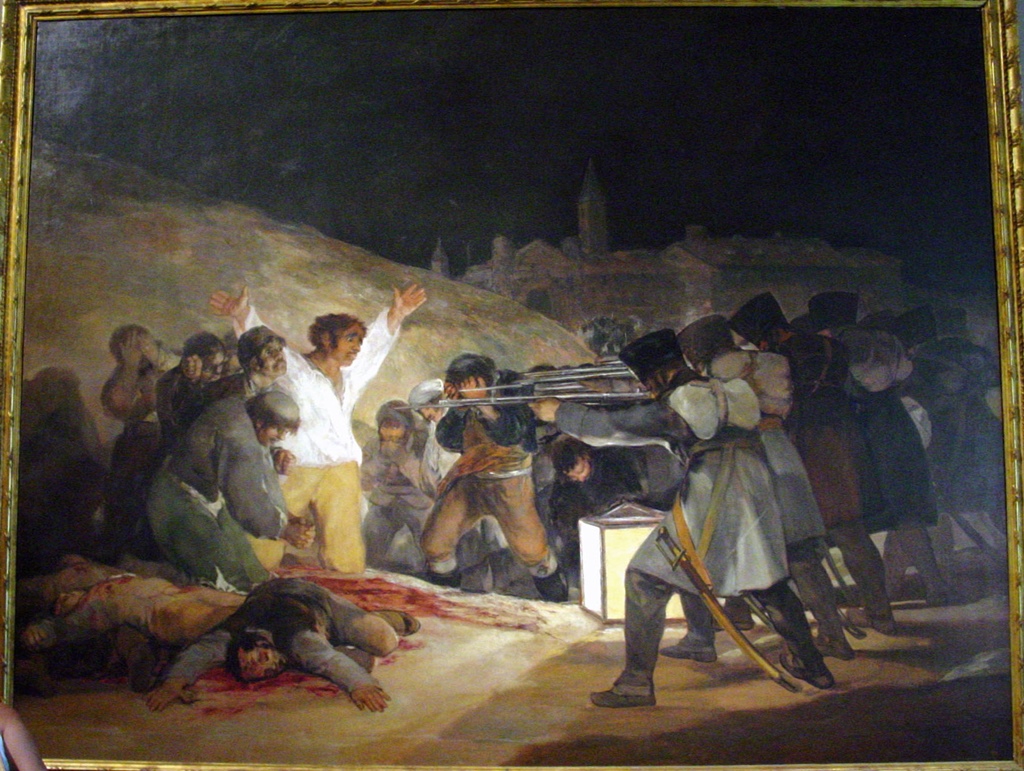In 1809, Napoleon’s troops surrounded Vienna, bombarded the city for 24 hours or so, until it surrendered. By then, the local aristocracy, of which there was more than enough to go around, had long driven off in their splendid equipages to go and visit aristocratic relatives in other duchies, princedoms and kingdoms, whereas the dismayed populace had to pretend, after Vienna’s defeat, to celebrate Napoleon’s birthday.
The history of war is full of miscalculations, luck, hubris, coincidence and, above all cynicism. Writers, poets, gamers and innumerable nameless mostly men study past wars as though war were a fascinating sport; advances here, retreats there, trenches, camaraderie, the grisly life-changing sight of a comrade’s death, and the look in the eyes of an enemy soldier before you kill him. War enthusiasts glorify “brilliant generals” such as Caesar, Hannibal and Napoleon, who all had at least one thing in common: They did not balk at committing genocide, real genocide, not the kind of genocide that Mr Putin has referred to, but the kind that the US has contributed to on several occasions.
In 1809, during Napoleon’s bombardment of Vienna, the composer Beethoven, who by then had become a Viennese superstar, lay screaming in his bed with a pillow over his head. As you may know, Napoleon had disappointed Beethoven, who was in many ways a revolutionary. Not only was his music revolutionary, but his temper and pride were so exceptional that dukes and princes cringed before him, a mere composer, a poor man. “Prince, ” he wrote to Prince Karl von Lichnowsky at whom he had attempted to throw a chair, “what you are, you are through chance and birth; what I am, I am through my own labour. There are many princes and there will continue to be thousands more, but there is only one Beethoven.” That is hubris.
Hubris is not an adjective; nevertheless it is used as an epithet, an unflattering one. Beethoven’s hubris may have been unattractive – apparently, he was a rather horrid person – but it killed nobody, and his music is, for those of us who like that sort of thing, no less than transcendental.
The hubris of Napoleon is of a difference order. He was truly a liberal reformer. Most importantly, his seeds of reform to jurisprudence have survived to this day in all liberal democracies. He reformed education, introduced the metric system, allowed religious freedom, stimulated the arts, etc., etc. But the Viennese would have none of him.
The Spaniards would have none of him either, or of his brother. Now Spain at that time has sometimes been described as the “Tibet of Europe”. The socio-political progress embodied in the renaissance, which subsequently rippled through country after country, had not penetrated Spain. Most Spaniards were so suppressed, so desperately poor and exploited that they rejected the reforms offered by Napoleon’s brother. They must have thought: “He offers us longer life expectancy; we certainly don’t want that. Our only chance of getting out of this living hell is to starve to death.” (The Catholic Church prohibited suicide under pain of perpetual damnation. You can imagine what a catch-22 that was for the average Spanish peasant!)

Spanish peasants heroically defended their horrible king, i.e. their right to die of starvation.
Psychologists agree about one thing: Never tell the patient what to do, because the patient may then want to do the exact opposite. Dictators tell their people what to do, what to think, even.
Mind you, some dictators are visionary and maybe even wise when they are still young, e.g. Mugabe, but as they age, they tend to turn into monsters. We all know that, except dictators of course.
There are other ways of making people do what you want them to, as any reasonably honest psychologist will tell you. For decades, US American voters have politely declined longer life expectancy, just like the Spanish peasant back in the beginning of the nineteenth century. For decades the US has had – and still has – all of western Europe dancing to its tune of Marche Funebre.
Now, of course, things are starting to unravel even in the USA. What, I ask myself, will my grandchildren – assuming they survive the inevitable ecological collapse – tell their children about USA?

Meanwhile, time is running out: We are following the Pied Piper, marching full speed from the frying pan and into the fire (e.g. forest fires, due to which climate gas emissions are soaring, causing more forest fires…,etc.) cf. “Less is More”.
